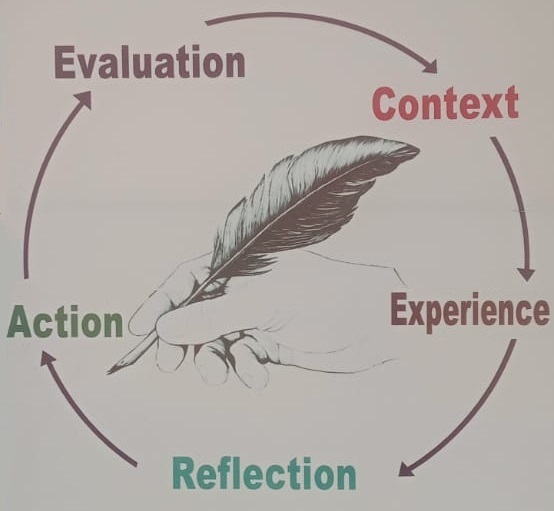Our Teaching Pedagogy
Our teaching pedagogy is a model that promotes the goal of Jesuit education, speaks to the teaching-learning process, addresses the faculty-student relationship, and has practical meaning and application for the classroom teaching. Similar to the process of guiding others in the Spiritual Exercises, faculty accompany students in their intellectual, spiritual, and emotional development. They do this by creating the conditions, laying the foundations, and providing the opportunities for the continual interplay of the student's experience, reflection, and action to occur. Throughout the process, it is important that faculty be sensitive to their own experience, attitudes, and opinions lest they impose their own agenda on their students.
It strives to develop young men and women students of competence, conscience, and compassion. It is a collaborative process which fosters personal and cooperative study, discovery, creativity, and reflection to promote life-long learning and action in service to others. The process includes the following elements: Context, Experience, Reflection, Action and Evaluation.

